Find Help
More Items From Ergsy search
-
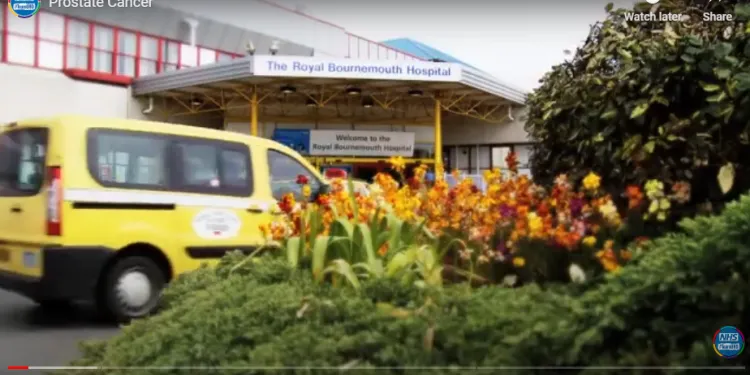
What is Prostate Cancer?
Relevance: 100%
-
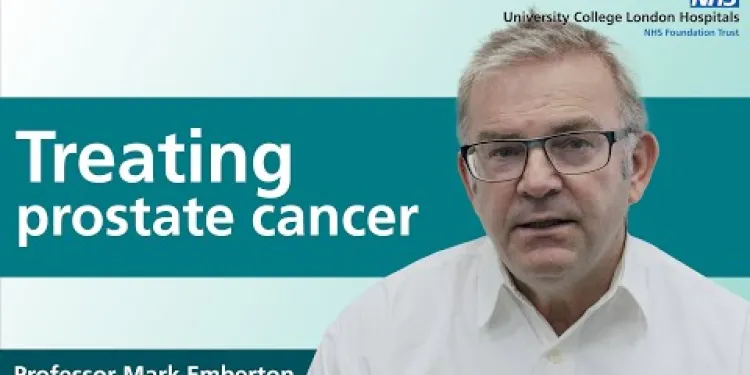
Treating prostate cancer
Relevance: 100%
-
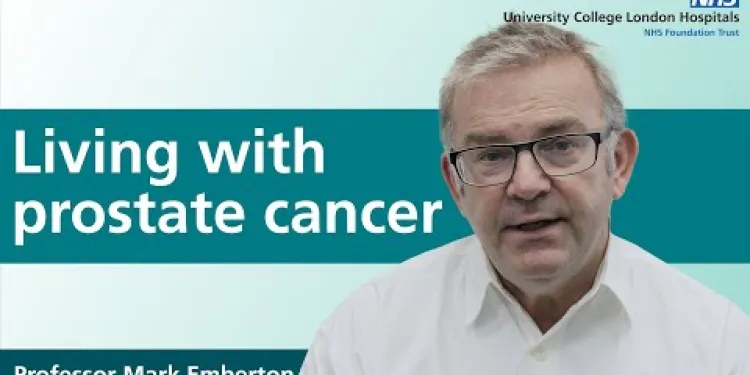
Living with prostate cancer
Relevance: 99%
-

How is prostate cancer treated?
Relevance: 96%
-

Is BPH the same as prostate cancer?
Relevance: 96%
-
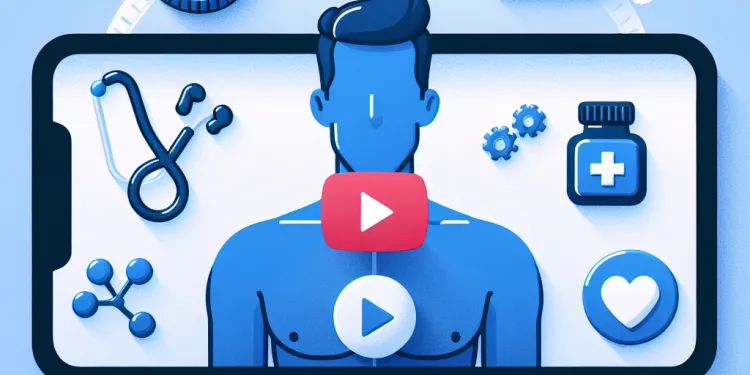
Am I more at risk of prostate cancer?
Relevance: 96%
-
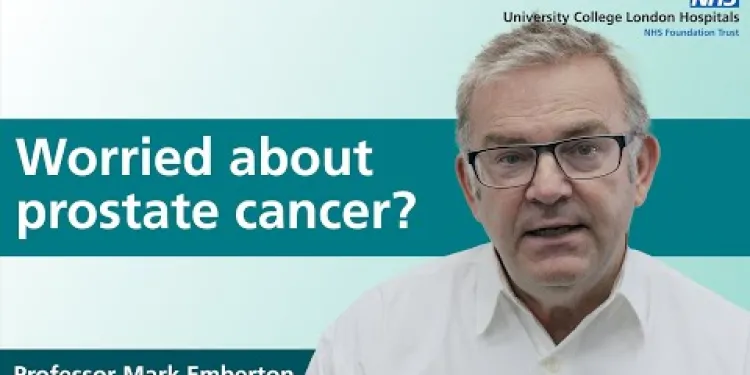
Prostate cancer diagnosis and tests
Relevance: 96%
-
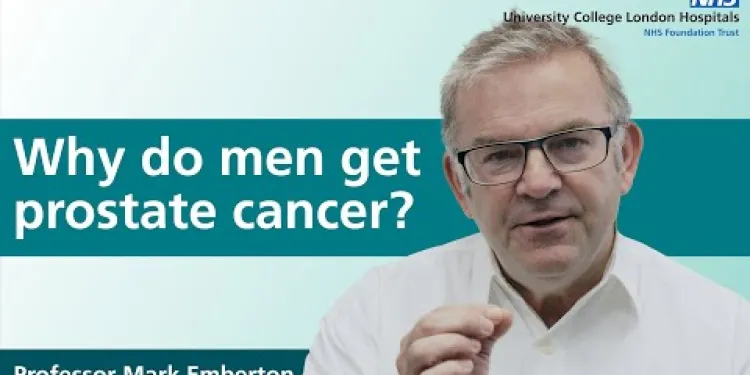
Why do men get prostate cancer?
Relevance: 93%
-
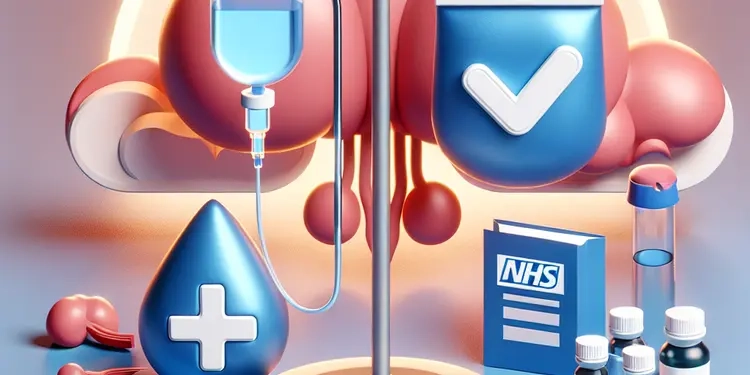
When is chemotherapy used for prostate cancer?
Relevance: 92%
-
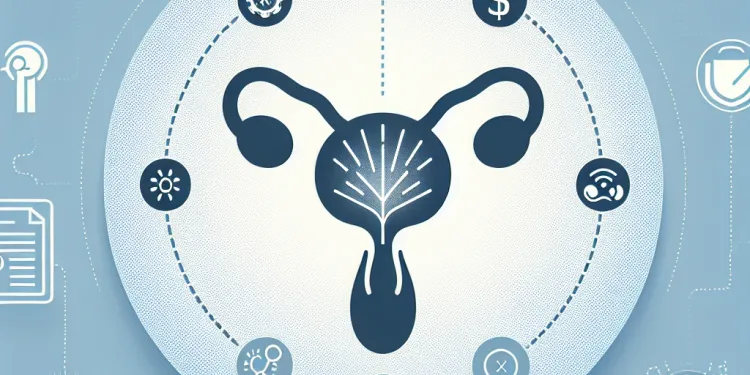
Hormone Therapy for prostate cancer
Relevance: 92%
-

Is focal therapy an option for prostate cancer?
Relevance: 91%
-
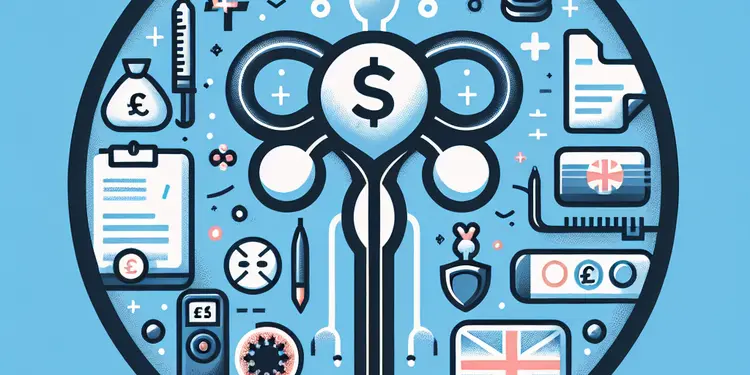
How is advanced prostate cancer treated?
Relevance: 91%
-

Does Abiraterone cure prostate cancer?
Relevance: 90%
-

What is the role of immunotherapy in prostate cancer treatment?
Relevance: 90%
-
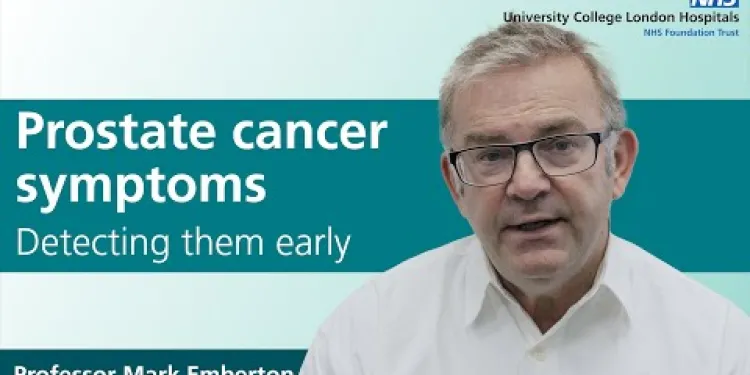
Prostate cancer symptoms - detecting them early
Relevance: 90%
-
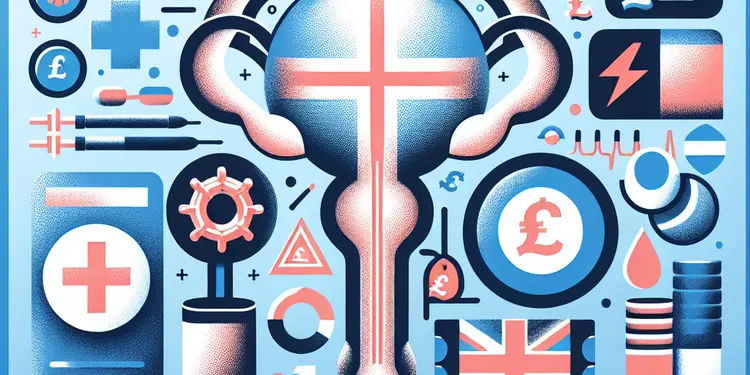
Can Abiraterone be used for early-stage prostate cancer?
Relevance: 89%
-

Can prostate cancer recur after treatment?
Relevance: 89%
-

Does BPH increase the risk of prostate cancer?
Relevance: 89%
-

Breakthrough in Cancer Treatment Offers Hope for Prostate Cancer Patients
Relevance: 88%
-
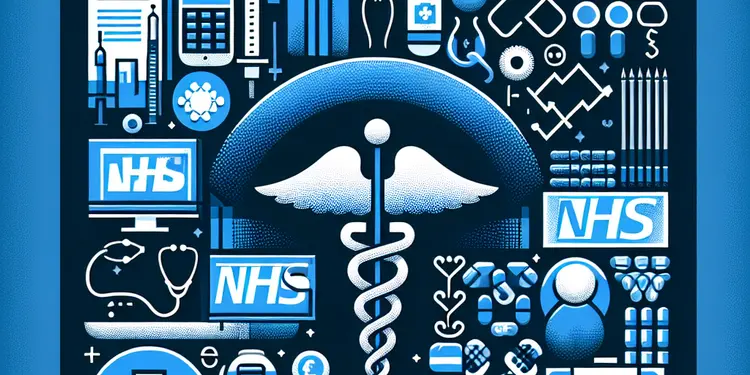
Is there an NHS app for managing prostate cancer care?
Relevance: 88%
-

How does surgery treat prostate cancer?
Relevance: 88%
-

Are there clinical trials available for prostate cancer treatment?
Relevance: 87%
-

What are PSA levels? - Prostate Cancer
Relevance: 87%
-
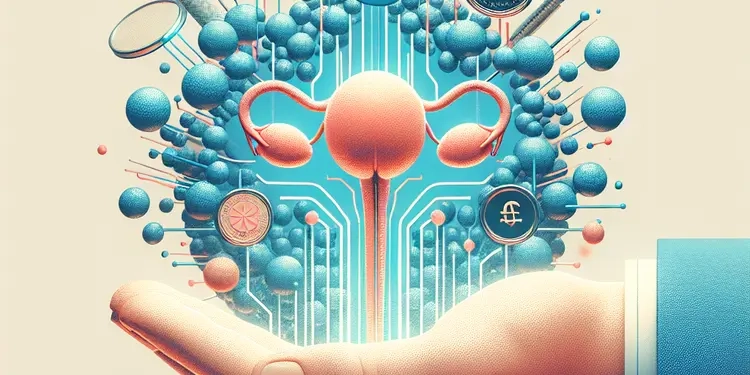
Can prostate cancer be treated with targeted therapy?
Relevance: 87%
-

Are there online support services for prostate cancer patients on the NHS?
Relevance: 86%
-
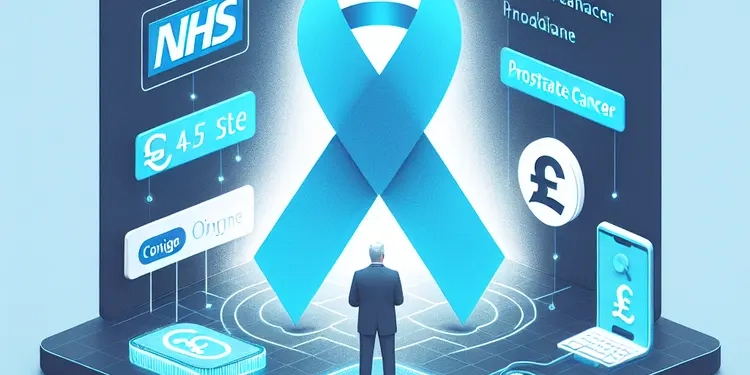
Does the NHS offer an online hospital for prostate cancer?
Relevance: 86%
-

What is the purpose of a bone scan in prostate cancer treatment?
Relevance: 86%
-

Are there specific vegetables that are more effective against prostate cancer?
Relevance: 86%
-

What is active surveillance in prostate cancer treatment?
Relevance: 86%
-

How does cryotherapy work in treating prostate cancer?
Relevance: 85%
-
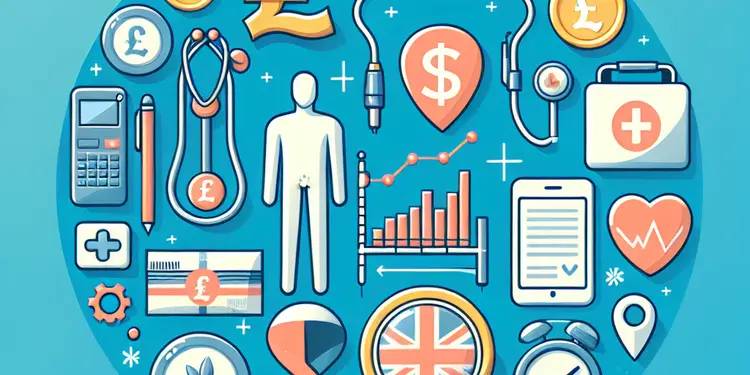
Can lifestyle changes complement prostate cancer treatment?
Relevance: 85%
-

Does the NHS offer an online hospital for prostate cancer?
Relevance: 85%
-
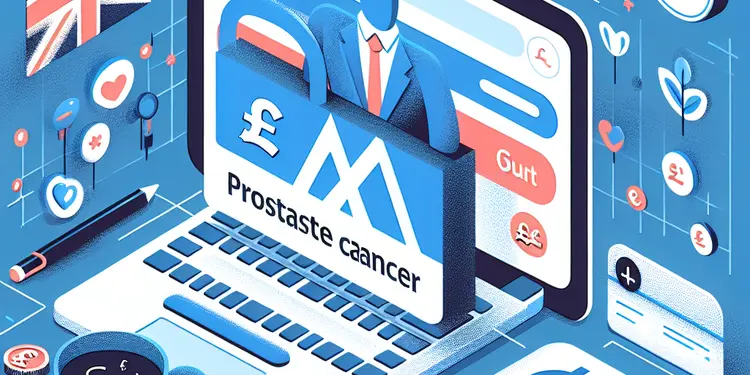
Can I access prostate cancer information online through the NHS?
Relevance: 85%
-

What role do probiotics play in managing prostate cancer?
Relevance: 85%
-

What are the side effects of prostate cancer surgery?
Relevance: 84%
-

What factors determine the treatment plan for prostate cancer?
Relevance: 84%
-

How does hormone therapy help in treating prostate cancer?
Relevance: 84%
-

Can eating vegetables help slow the progression of prostate cancer?
Relevance: 83%
-

Can eating vegetables and probiotics help slow prostate cancer?
Relevance: 83%
-
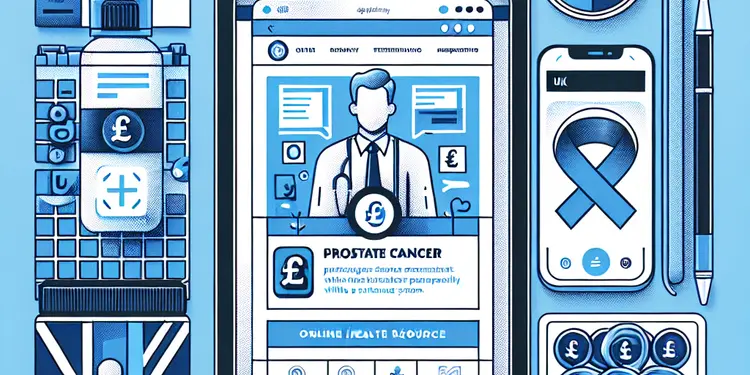
Where can I find online resources for prostate cancer treatments on the NHS?
Relevance: 83%
You have prostate cancer. Now what?
Living with prostate cancer can be challenging, but with proper management and support, many men lead fulfilling lives. Here are some key aspects to consider when living with prostate cancer:
- Medical Management: Work closely with your healthcare team to develop a personalized treatment plan tailored to your specific situation. Treatment options may include active surveillance, surgery, radiation therapy, hormone therapy, chemotherapy, immunotherapy, or a combination of these approaches.
- Monitoring and Follow-up: Regular monitoring and follow-up appointments are essential to track the progression of the disease and evaluate the effectiveness of treatment. Keep all appointments with your healthcare provider and discuss any concerns or changes in symptoms promptly.
- Healthy Lifestyle: Adopting a healthy lifestyle can help manage the side effects of treatment and improve overall well-being. This includes maintaining a balanced diet, staying physically active, managing stress, getting enough sleep, and avoiding tobacco and excessive alcohol consumption.
- Support Network: Lean on your support network, including family, friends, and support groups, for emotional support and practical assistance. Connecting with others who have prostate cancer can provide valuable insights, encouragement, and a sense of community.
- Managing Side Effects: Different treatments for prostate cancer can cause side effects such as urinary incontinence, erectile dysfunction, fatigue, and changes in bowel habits. Work with your healthcare team to manage these side effects effectively through medication, lifestyle adjustments, and supportive therapies.
- Emotional Well-being: Dealing with a cancer diagnosis and treatment can take a toll on your emotional health. It's important to address any feelings of anxiety, depression, or stress by seeking support from mental health professionals, joining support groups, or participating in relaxation techniques such as meditation or yoga.
- Open Communication: Maintain open and honest communication with your healthcare team and loved ones about your concerns, needs, and preferences. Effective communication ensures that you receive the support and care you require throughout your journey with prostate cancer.
- Educate Yourself: Take the time to educate yourself about prostate cancer, including its causes, treatments, and potential outcomes. Being well-informed empowers you to make informed decisions about your care and actively participate in your treatment plan.
- Maintaining Normalcy: Try to maintain a sense of normalcy in your life by continuing to engage in activities you enjoy, pursuing hobbies and interests, and staying socially connected. Finding joy and fulfillment in daily activities can contribute to your overall well-being and quality of life.
- Hope and Positivity: While living with prostate cancer can present challenges, it's essential to maintain hope and a positive outlook. Focus on the present moment, celebrate small victories, and remain optimistic about the future.
Remember that every individual's experience with prostate cancer is unique, and it's okay to seek help and support as needed. By taking an active role in your care, accessing support services, and maintaining a positive mindset, you can effectively navigate the challenges of living with prostate cancer and enjoy a meaningful life.
Living with Prostate Cancer in the UK
Understanding Prostate Cancer
Prostate cancer is one of the most common cancers affecting men in the UK. It occurs when cells in the prostate gland grow uncontrollably. The prostate is a small gland located below the bladder and in front of the rectum. While it mainly affects older men, understanding early signs and symptoms can be crucial for timely diagnosis and treatment.
Symptoms and Diagnosis
Common symptoms of prostate cancer include difficulties in urinating, blood in the urine, and pelvic discomfort. However, in its early stages, prostate cancer may not present any symptoms. Regular screenings, such as PSA (Prostate-Specific Antigen) tests and digital rectal exams, are important for early detection. If you experience any unusual symptoms, consult your GP for a thorough evaluation.
Treatment Options
Treatment for prostate cancer varies depending on the stage and aggressiveness of the cancer. Common treatments include surgery, radiation therapy, hormone therapy, and chemotherapy. In some cases, active surveillance or "watchful waiting" may be recommended if the cancer is slow-growing. Your healthcare team will discuss the best options suitable for your condition and lifestyle.
Living with Prostate Cancer
Living with prostate cancer can be challenging, but there are resources and support available. Maintaining a healthy lifestyle, including a balanced diet and regular physical activity, can improve overall well-being. Additionally, support groups and counselling can provide emotional support and help manage the psychological impact of the disease. Charities like Prostate Cancer UK offer comprehensive resources and community support.
Navigating Healthcare in the UK
The National Health Service (NHS) provides essential services for prostate cancer patients, including screening, treatment, and follow-up care. It is important to establish a good relationship with your healthcare team and stay informed about your treatment plan. Utilize NHS resources and online tools for detailed information about managing prostate cancer and accessing support services.
Conclusion
Prostate cancer is a serious condition, but with early detection and appropriate treatment, many men can manage the disease effectively. Stay informed, maintain open communication with your healthcare providers, and seek support to enhance your quality of life while living with prostate cancer. Remember, you are not alone, and numerous resources are available to help you navigate this journey.
You have prostate cancer. Now what?
Having prostate cancer can be tough. But with help, many people live happy lives. Here are some things to think about if you have prostate cancer:
- Work with Your Doctors: Talk to your doctors to make a plan just for you. Some treatments might be watching and waiting, surgery, or special medicines. Ask your doctor what is best for you.
- Check on Your Health: Keep going to your doctor to see how you are doing. This helps to know if the treatment is working. Tell your doctor if you feel different or have new problems.
- Stay Healthy: Eating good food and moving your body can help you feel better. Try not to smoke or drink too much alcohol. Do things that make you happy and relaxed.
- Lean on Friends and Family: Talk to your family and friends. They can help you feel better and give support. Meeting other people with prostate cancer can help too.
- Take Care of Side Effects: Some treatments might make you tired or change how you feel. Ask your doctor how to handle these changes. Medicines or changes in what you do can help.
- Feelings Matter: It is normal to feel sad or worried. Talk to someone who can help, like a counselor. Doing things like deep breathing and yoga can also help you feel calmer.
- Keep Talking: Share how you feel with your doctor and family. This helps everyone know how to support you best.
- Learn About Your Illness: Find out more about prostate cancer if you want to. Knowing more helps you make choices about your care.
- Do What You Love: Keep doing fun things you enjoyed before. This can make you feel happy and give you energy.
- Stay Positive: Always try to keep a positive mind. Think about good things and the support you have around you.
Remember, everyone is different, and asking for help is okay. When you take care of yourself and ask for support, you can live well with prostate cancer.
Living with Prostate Cancer in the UK
Understanding Prostate Cancer
Prostate cancer is an illness that affects men in the UK. It happens when cells in the prostate gland grow too much. The prostate is a small part of the body below the bladder. It mainly affects older men. It is important to know the signs early so doctors can help.
Symptoms and Diagnosis
Signs of prostate cancer can include trouble peeing, blood in pee, and feeling pain in the lower tummy. Sometimes, there are no signs at the start. Doctors can do tests to find out if you have prostate cancer. If you feel something is wrong, talk to your doctor.
Treatment Options
There are different treatments for prostate cancer. It depends on how bad the cancer is. Treatments can be surgery, using special rays, or medicine. Sometimes, doctors wait and watch if the cancer is slow growing. Your doctor will tell you the best treatment for you.
Living with Prostate Cancer
Living with prostate cancer can be hard, but there is help. Eating healthy food and exercising can make you feel better. There are groups and people to talk to if you feel sad. Charities like Prostate Cancer UK can help with information and support.
Navigating Healthcare in the UK
The NHS helps people with prostate cancer. They offer checks, treatment, and care after treatment. It is good to talk to your doctor and ask questions. You can also find information online to help you understand prostate cancer better.
Conclusion
Prostate cancer is serious, but finding it early and getting the right treatment can help. Always talk to your doctor and ask questions. Remember, there are many people and resources to help you. You are not alone in this journey.
Frequently Asked Questions
What is prostate cancer?
Prostate cancer is a type of cancer that occurs in the prostate, a small gland in men that produces seminal fluid.
What are the common symptoms of prostate cancer?
Common symptoms include difficulty urinating, blood in the urine, erectile dysfunction, and pain in the hips, back, or chest.
How is prostate cancer diagnosed?
Prostate cancer is typically diagnosed through a combination of a PSA (prostate-specific antigen) blood test, a digital rectal exam (DRE), and a biopsy.
What are the treatment options for prostate cancer?
Treatment options include active surveillance, surgery, radiation therapy, hormone therapy, chemotherapy, and targeted therapy.
What is a PSA test?
A PSA test measures the level of prostate-specific antigen in the blood, which can be elevated in men with prostate cancer.
Can prostate cancer be cured?
Prostate cancer is often treatable and many men live long, healthy lives after treatment, particularly when the cancer is caught early.
Are there risk factors for developing prostate cancer?
Yes, risk factors include age, family history, ethnicity (higher risk in African-Caribbean men), diet, and lifestyle.
How does prostate cancer affect daily life?
The impact varies but may include urinary, sexual, and emotional challenges. Support and management strategies can help maintain quality of life.
What lifestyle changes can help manage prostate cancer?
Healthy eating, regular exercise, quitting smoking, and reducing alcohol intake can help manage the condition and improve overall health.
Are there support groups available for men with prostate cancer in the UK?
Yes, there are various support groups and organisations, such as Prostate Cancer UK and Macmillan Cancer Support, that offer advice and community support.
What is the survival rate for prostate cancer?
The survival rate is high, especially when detected early. Nearly 90% of men diagnosed with prostate cancer will survive for at least 10 years.
Can prostate cancer spread to other parts of the body?
Yes, prostate cancer can metastasise to other areas, commonly the bones and lymph nodes, which can complicate treatment and prognosis.
What are the side effects of prostate cancer treatment?
Side effects vary by treatment and may include fatigue, hot flashes, loss of sexual desire, urinary problems, and bowel issues.
Is it safe to exercise with prostate cancer?
Exercise is generally safe and can be beneficial, but it's important to discuss any new exercise regimes with your healthcare provider.
How often should I have check-ups during and after prostate cancer treatment?
The frequency of check-ups varies based on individual circumstances but may include regular PSA tests and follow-up appointments every 3 to 6 months.
What is prostate cancer?
Prostate cancer is when bad cells grow in the prostate. The prostate is a small gland in men. It helps make fluid for babies. Prostate cancer can make you feel unwell.
Tools to help you:
- Use simple books or videos about prostate cancer.
- Ask a doctor or nurse to explain it with easy words.
- Talk to someone you trust about your questions.
Prostate cancer is a kind of cancer. It starts in the prostate. The prostate is a small part inside a man's body. It helps make a fluid for sperm.
What are the common signs of prostate cancer?
Here are some things to look for:
- Trouble peeing
- Peeing often, especially at night
- Weak or slow pee stream
- Blood in pee
- Pain when peeing
- Pain in the back, hips, or pelvis
If you notice any of these signs, it is important to talk to a doctor. You can also ask someone you trust to help you understand more about it.
Using pictures and videos can make it easier to learn. Ask for help if you have questions.
Signs of a problem can include trouble peeing, blood in your pee, trouble getting or keeping an erection, and pain in your hips, back, or chest.
How do doctors know if someone has prostate cancer?
Doctors check for prostate cancer in a few ways. Here are some steps they might take:
- Visit the Doctor: The first step is to see a doctor. Talk to them about any worries you have.
- Check-Up: The doctor may do a check-up. They might feel the prostate through the back passage to see if it is normal.
- Blood Test: Doctors might take some blood. This test looks for something called PSA, which can be high if there is cancer.
- Scan or X-ray: Sometimes, doctors use machines to take pictures of the inside of the body. This helps them see if there is cancer.
- Sample Test: Doctors might take a small piece of the prostate to look at it closely. This shows if there are cancer cells.
Family or friends can help you understand this process. You can also use tools like a notebook or app to write down any questions you have before visiting the doctor.
Doctors use a few tests to find out if someone has prostate cancer. They use a blood test called PSA test, check the prostate with a DRE test, and sometimes take a small piece from the prostate to check it. This is called a biopsy.
What can you do if you have prostate cancer?
If you find out you have prostate cancer, there are ways to help you get better. Here are some things you can do:
1. Talk to Your Doctor: Your doctor can tell you what treatment is best for you. They know a lot about helping people get better.
2. Medicine: There are special medicines that can help fight the cancer. Your doctor might give you these.
3. Surgery: This means a doctor will do an operation to take out the cancer.
4. Radiation: This is strong X-rays that can kill cancer cells.
5. Help from Friends and Family: Talk to people you trust. They can help you feel better and not so worried.
You can also use tools to help understand more, like picture books or videos made for kids. These can make it easier to learn what is happening in your body. Remember, your doctor is there to help you, so always ask if you have questions.
There are different ways to treat cancer. They are:
- Watching and waiting (to see how things go)
- Surgery (an operation to take out the cancer)
- Radiation therapy (using strong rays to kill cancer cells)
- Hormone therapy (using medicines to change hormones that cancer needs)
- Chemotherapy (using strong medicine to kill cancer cells)
- Targeted therapy (using medicine that goes straight to cancer cells)
If you need help, ask someone to read with you or use audiobooks to listen.
What is a PSA test?
A PSA test is a simple blood test. It checks for a special protein made by the prostate gland in men. This test can help find prostate problems.
If you find reading hard, try these tips:
- Have someone read it with you.
- Use a text-to-speech tool to hear the words.
- Look up hard words in a simple dictionary.
A PSA test is a blood test for men. It checks for something called prostate-specific antigen, or PSA. Men with prostate cancer can have higher levels of PSA in their blood.
Can Prostate Cancer be Fixed?
Prostate cancer can often be treated. Many men can live long and healthy lives after they get treatment. This is especially true if doctors find the cancer early.
Helpful tips:
- Talk with your doctor about regular check-ups.
- Ask questions if you don’t understand something.
- Support from family and friends can be very helpful.
- Using pictures or diagrams might make information easier to understand.
What can make prostate cancer more likely?
Yes, some things can make the risk higher. These include how old you are, if family members have had it, your background (African-Caribbean men have a higher risk), what you eat, and how you live.
How does prostate cancer affect daily life?
Prostate cancer is an illness that happens in a part of the body called the prostate. This can change how a person feels and what they can do each day.
People with prostate cancer might feel very tired a lot. This is called fatigue. It can make it hard to do things you like or need to do.
Some people may have pain or feel uncomfortable. Going to the toilet can also be more difficult.
Sometimes, people might feel sad or worried because of the cancer. Talking to friends, family, or a counselor can help.
To help feel better, try to eat healthy food, get rest, and talk to your doctor about how you feel. They can give advice on treatments and support.
Tools like reminder apps and planners can help keep track of daily tasks and appointments.
Prostate cancer can cause problems like trouble going to the toilet, feeling sad or worried, and issues with sex. But there are ways to help and make things better.
What changes can help with prostate cancer?
If you have prostate cancer, some changes can help you:
- Eat Healthy: Eat lots of fruits and vegetables. Try to eat less red and processed meat.
- Stay Active: Exercise like walking or playing can make you feel better.
- Quit Smoking: If you smoke, try to stop. Ask a doctor for help if you need it.
- Talk to Someone: Talking about your feelings can help. You can talk to friends, family, or a counselor.
These changes might help your body feel stronger and healthier.
Eating good food, moving your body often, not smoking, and drinking less alcohol can help you feel better and stay healthy.
Can men with prostate cancer in the UK find support groups?
Yes, there are groups where men with prostate cancer can get help in the UK. These groups let men talk to others with the same illness.
If you want to find a group, you can:
- Ask your doctor or nurse for ideas.
- Look on the internet for groups near you.
- Call a charity for cancer help in the UK for advice.
Yes, there are support groups that can help. Groups like Prostate Cancer UK and Macmillan Cancer Support give advice and have people you can talk to.
How many people with prostate cancer live for a long time?
Most men live for a long time after finding out they have prostate cancer. If it's found early, there is a very good chance of living longer. Almost 90 out of 100 men will be alive at least 10 years after they find out they have prostate cancer.
Can prostate cancer move to other parts of the body?
Yes, prostate cancer can move to other parts of the body. This is called metastasis.
It can spread to bones, lymph nodes, and other areas.
To help you learn more, you can:
- Use pictures to understand the information better.
- Watch videos about prostate cancer.
- Ask someone to explain it to you in a simple way.
Yes, prostate cancer can spread to other parts of the body. It often spreads to the bones and small lumps called lymph nodes. This can make treatment harder and affect how well someone might get better.
What happens after treatment for prostate cancer?
After treatment for prostate cancer, your body might feel different. Here are some things that might happen:
- You might feel tired.
- It could be hard to pee or you might need to go a lot.
- Sometimes, you might not feel like eating.
- You could feel sad or worried.
- Your skin might change or you might lose some hair.
If you feel any of these, it is important to tell someone. You can talk to a doctor or nurse. They can help you feel better.
Here are some things that might help:
- Ask a doctor what you can do to feel better.
- Rest if you feel tired.
- Eat healthy food to have more energy.
- Try to do small exercises like walking.
- Talk to friends and family about how you feel.
Remember, it is okay to ask for help.
Treatment can have different side effects. You might feel very tired, have hot flashes, not want to have sex, have trouble peeing, or have issues with your tummy and bowels.
Can I exercise if I have prostate cancer?
If you have prostate cancer, it is important to talk to your doctor before starting exercise.
Exercise can be helpful. It can make you feel better and stronger. But you need to make sure it is safe for you.
Here are some tips:
- Ask your doctor what exercises are good for you.
- Start slowly and gently. Do not push too hard.
- Listen to your body. If something hurts, stop.
- It can be fun to walk, swim, or do yoga.
If you want some help, you can ask a friend or a fitness coach.
Exercise is usually safe and good for you, but it's important to talk to your doctor before starting any new exercises.
How many times do I need to see the doctor during and after prostate cancer treatment?
It is important to see your doctor regularly to stay healthy.
Ask your doctor how many times you need to come for check-ups.
Your doctor will tell you how often you should have these visits.
Write down your appointments so you don't forget them.
Bring a family member or friend if you want support.
How often you need check-ups can be different for each person. You might need to have check-ups every 3 to 6 months. This can include a special blood test called a PSA test.
If it is hard to keep track of appointments, you can use a calendar or set reminders on your phone to help you remember.
Useful Links
This website offers general information and is not a substitute for professional advice.
Always seek guidance from qualified professionals.
If you have any medical concerns or need urgent help, contact a healthcare professional or emergency services immediately.
- Ergsy carfully checks the information in the videos we provide here.
- Videos shown by Youtube after a video has completed, have NOT been reviewed by ERGSY.
- To view, click the arrow in centre of video.
- Most of the videos you find here will have subtitles and/or closed captions available.
- You may need to turn these on, and choose your preferred language.
- Go to the video you'd like to watch.
- If closed captions (CC) are available, settings will be visible on the bottom right of the video player.
- To turn on Captions, click settings .
- To turn off Captions, click settings again.
More Items From Ergsy search
-

What is Prostate Cancer?
Relevance: 100%
-

Treating prostate cancer
Relevance: 100%
-

Living with prostate cancer
Relevance: 99%
-

How is prostate cancer treated?
Relevance: 96%
-

Is BPH the same as prostate cancer?
Relevance: 96%
-

Am I more at risk of prostate cancer?
Relevance: 96%
-

Prostate cancer diagnosis and tests
Relevance: 96%
-

Why do men get prostate cancer?
Relevance: 93%
-

When is chemotherapy used for prostate cancer?
Relevance: 92%
-

Hormone Therapy for prostate cancer
Relevance: 92%
-

Is focal therapy an option for prostate cancer?
Relevance: 91%
-

How is advanced prostate cancer treated?
Relevance: 91%
-

Does Abiraterone cure prostate cancer?
Relevance: 90%
-

What is the role of immunotherapy in prostate cancer treatment?
Relevance: 90%
-

Prostate cancer symptoms - detecting them early
Relevance: 90%
-

Can Abiraterone be used for early-stage prostate cancer?
Relevance: 89%
-

Can prostate cancer recur after treatment?
Relevance: 89%
-

Does BPH increase the risk of prostate cancer?
Relevance: 89%
-

Breakthrough in Cancer Treatment Offers Hope for Prostate Cancer Patients
Relevance: 88%
-

Is there an NHS app for managing prostate cancer care?
Relevance: 88%
-

How does surgery treat prostate cancer?
Relevance: 88%
-

Are there clinical trials available for prostate cancer treatment?
Relevance: 87%
-

What are PSA levels? - Prostate Cancer
Relevance: 87%
-

Can prostate cancer be treated with targeted therapy?
Relevance: 87%
-

Are there online support services for prostate cancer patients on the NHS?
Relevance: 86%
-

Does the NHS offer an online hospital for prostate cancer?
Relevance: 86%
-

What is the purpose of a bone scan in prostate cancer treatment?
Relevance: 86%
-

Are there specific vegetables that are more effective against prostate cancer?
Relevance: 86%
-

What is active surveillance in prostate cancer treatment?
Relevance: 86%
-

How does cryotherapy work in treating prostate cancer?
Relevance: 85%
-

Can lifestyle changes complement prostate cancer treatment?
Relevance: 85%
-

Does the NHS offer an online hospital for prostate cancer?
Relevance: 85%
-

Can I access prostate cancer information online through the NHS?
Relevance: 85%
-

What role do probiotics play in managing prostate cancer?
Relevance: 85%
-

What are the side effects of prostate cancer surgery?
Relevance: 84%
-

What factors determine the treatment plan for prostate cancer?
Relevance: 84%
-

How does hormone therapy help in treating prostate cancer?
Relevance: 84%
-

Can eating vegetables help slow the progression of prostate cancer?
Relevance: 83%
-

Can eating vegetables and probiotics help slow prostate cancer?
Relevance: 83%
-

Where can I find online resources for prostate cancer treatments on the NHS?
Relevance: 83%


